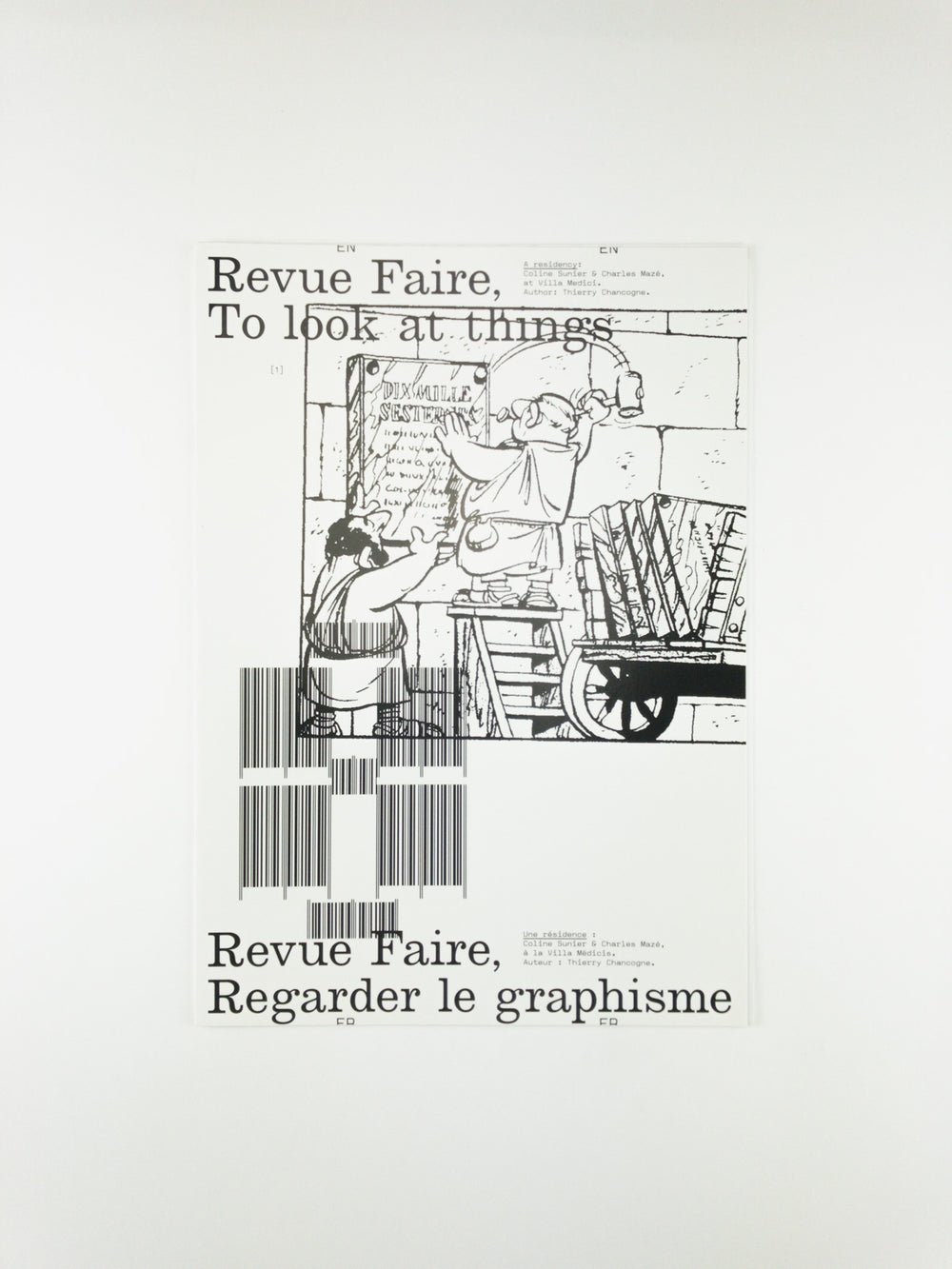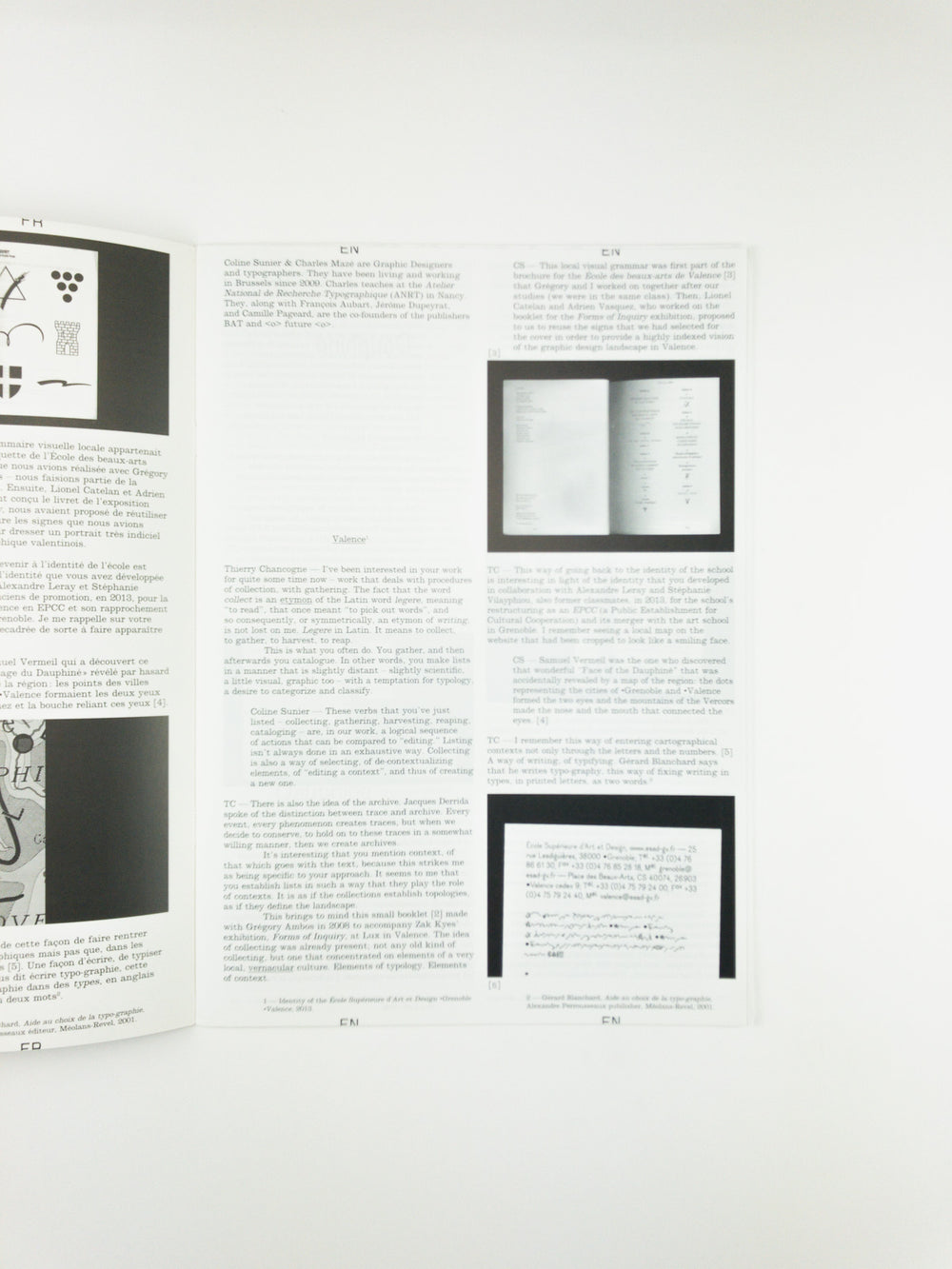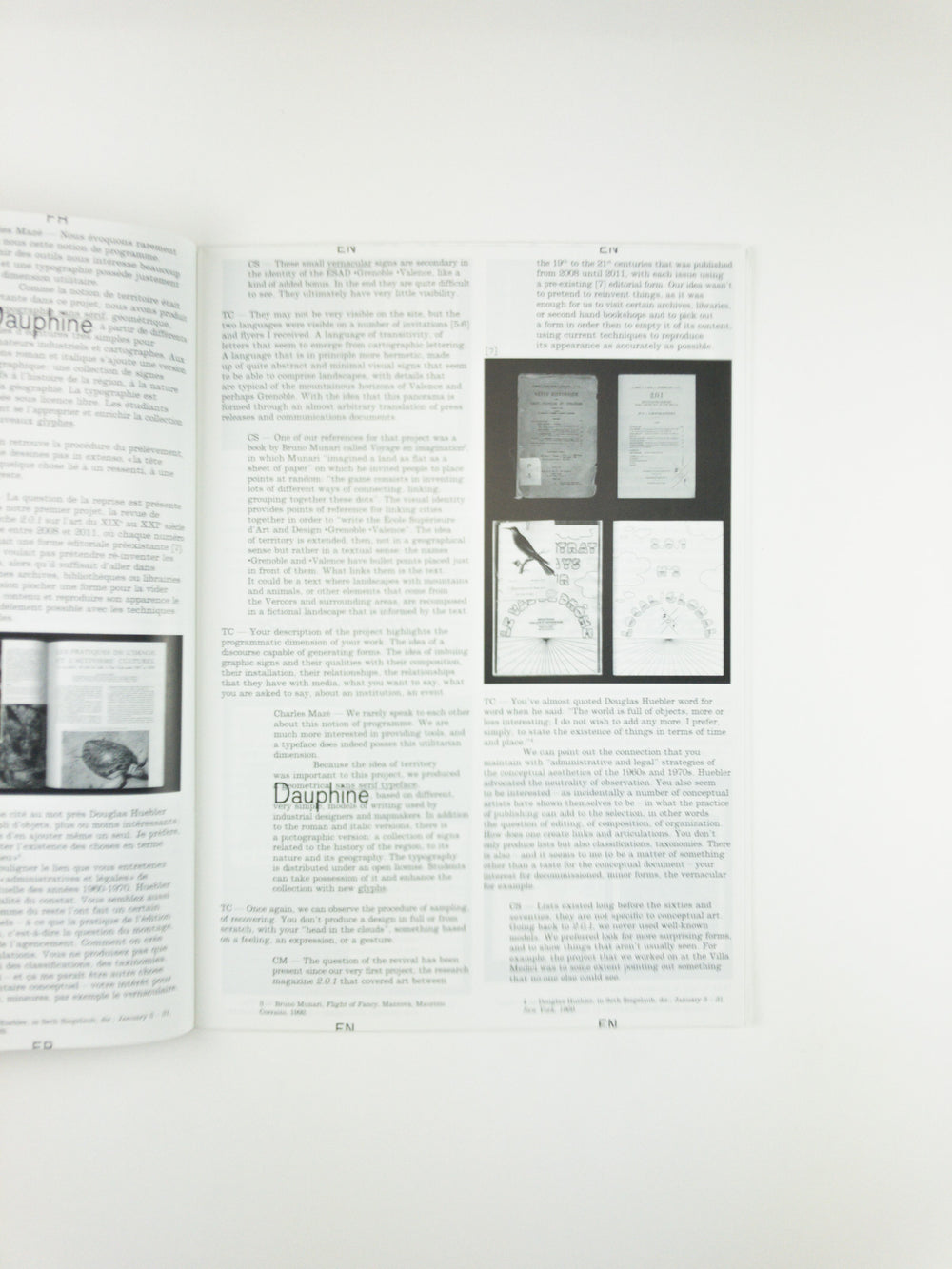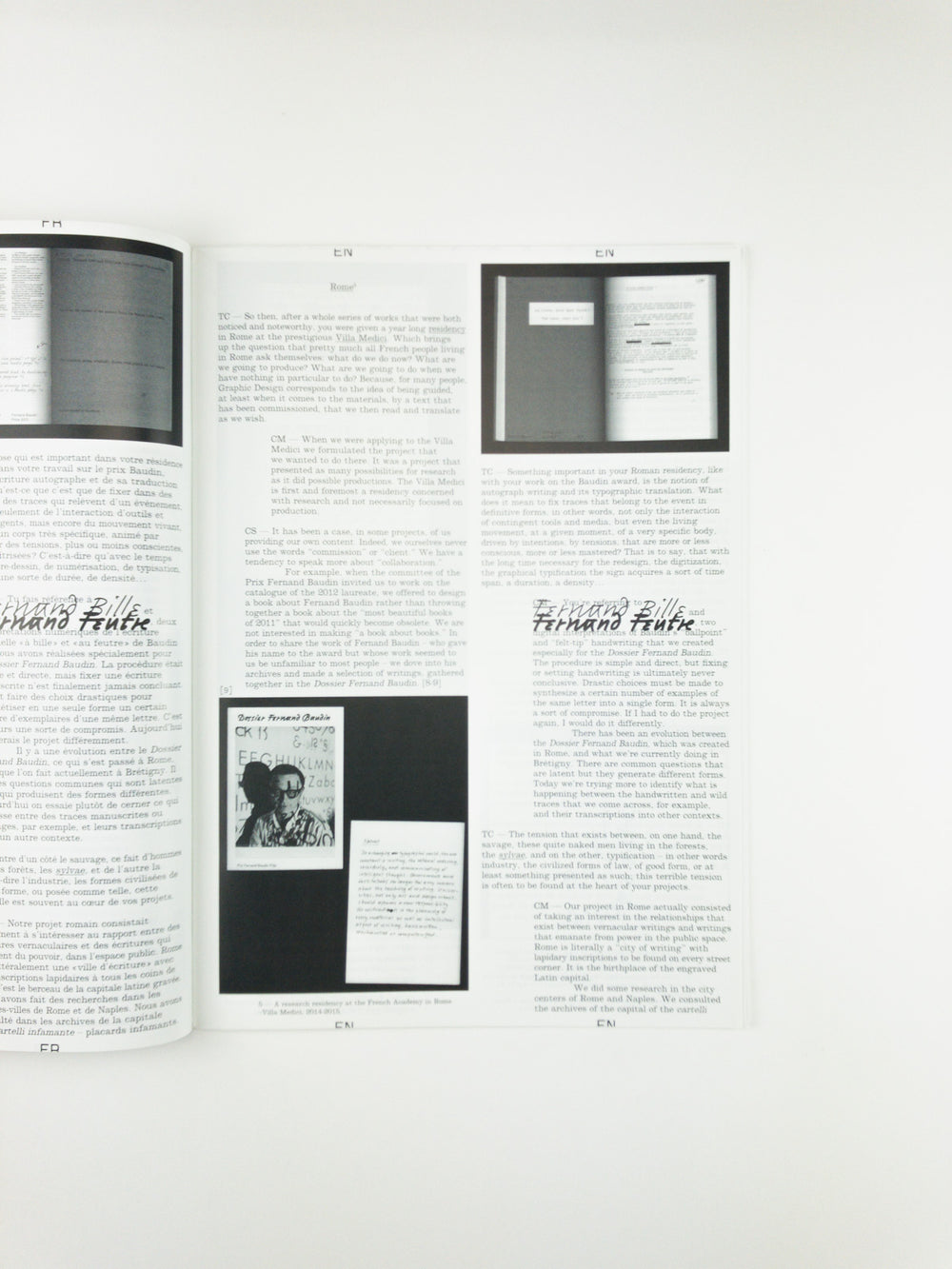Revue Faire no.08: A residency: Coline Sunier and Charles Mazé at Villa Medici.
Éditions Empire
Éditions Empire




1/4
2/4
3/4
4/4
Revue Faire no.08: A residency: Coline Sunier and Charles Mazé at Villa Medici.
Éditions Empire
Éditions Empire
A residency: Coline Sunier and Charles Mazé at Villa Medici. Author: Thierry Chancogne
Typo-topographic records
While still a student in the Ésad Valence, Coline Sunier, along with Grégory Ambos, created a striking front cover for the booklet associated with the Zak Kyes programme, Forms of Inquiry, using a series of jewels sampled from the more or less heraldic graphic patrimony of highly local emblems.
When she founded her studio with Charles Mazé, the duo continued the work of collection, which is at the same time one of the etymologies of reading, and one of the characteristics of the conceptual aesthetic of the list that emerged in the 1970s—first, in the re-casting of the Ésad Valence’s identity in 2012-2013; then in the work created during a residency at the Villa Médicis, Come vanno le cose?, dedicated to records of 1,512 graffiti found on the walls of Rome illustrating the portrait of a mysterious survivor, perhaps imagined, of the Red Brigades; and more recently in the identity developed for the Centre d’art contemporain in Brittany.
The collection of signs of power and the traces of resistance profoundly inscribed in the always political matter of the spaces is often accompanied by an attempt at typographic translation bringing to mind the work of typification in the personal writings of Fernand Baudin, created for the catalogue of the eponymous prize in 2012.
Typo-topographic records
While still a student in the Ésad Valence, Coline Sunier, along with Grégory Ambos, created a striking front cover for the booklet associated with the Zak Kyes programme, Forms of Inquiry, using a series of jewels sampled from the more or less heraldic graphic patrimony of highly local emblems.
When she founded her studio with Charles Mazé, the duo continued the work of collection, which is at the same time one of the etymologies of reading, and one of the characteristics of the conceptual aesthetic of the list that emerged in the 1970s—first, in the re-casting of the Ésad Valence’s identity in 2012-2013; then in the work created during a residency at the Villa Médicis, Come vanno le cose?, dedicated to records of 1,512 graffiti found on the walls of Rome illustrating the portrait of a mysterious survivor, perhaps imagined, of the Red Brigades; and more recently in the identity developed for the Centre d’art contemporain in Brittany.
The collection of signs of power and the traces of resistance profoundly inscribed in the always political matter of the spaces is often accompanied by an attempt at typographic translation bringing to mind the work of typification in the personal writings of Fernand Baudin, created for the catalogue of the eponymous prize in 2012.